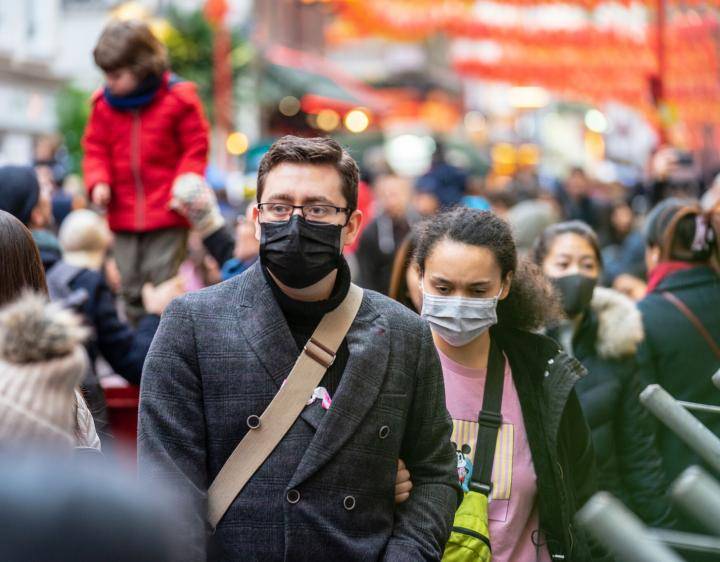
New diseases have a particular power to capture the imagination. There’s just a lot about them which is scary. They grow and spread fast. We’re accustomed to thinking our doctors are in control – what if they’re not? The symptoms sound so innocuous – how would you know to be worried?
And all that uncertainty. Should I respond? Should I change my habits? What do the statistics mean? The world is currently facing an outbreak of a new strand of coronavirus, Covid-19. Estimates of its deadliness vary. But at least one credible estimate gives it a fatality rate of around 1%1.
Most of us have quite profound loss aversion. We look at probabilities differently if the outcome is bad, rather than good. If you told me I had a 1% chance of winning a raffle, I would write it off. But a 1% chance of being the unlucky victim? That feels like a fait accompli.
There is also an odd familiar feeling. Nipah, SARS, Mexican Swine Flu, MERS, Ebola, Zika, now the coronavirus. If you feel like there’s an increasing drumbeat of these new diseases, then I’m afraid you’re right. A 2014 study in the Journal of the Royal Society [2] found: “the total number of and diversity of outbreaks, and richness of casual diseases increased significantly since 1980”. Alarming stuff – but what’s behind it?
First, the world is migrating into urban areas. And unfortunately, that doesn’t mean carefully planned, established cities. It means dense and chaotic urban sprawls. These are places where humans have encroached on habitats recently dominated by nature. That interaction creates “zoonotic” transmissions such as the one that lead to the current outbreak. The Wuhan “wet market”, where wild animals were for sale, now has global fame it never sought.
Second, too few of these new urban populations have access to quality healthcare. We’re accustomed to hearing about China’s amazing advances. What may surprise some is that access to primary care is still hugely inadequate. In 2017, there were 2.4 nurses to every 1,000 people in China2. The UK by comparison had 7.9.
Third, the world is more connected than ever before. Consider the path of the British “superspreader” who brought the virus here to the UK3. Singapore, then the French Alps, and then home. One of his companions in the Alps flew home to Spain. Nothing unusual in this, to modern eyes – after all, air travel has increased by something like 5.5% a year for a decade4. But for a pathogen, these are opportunities like never before.
The fourth big challenge is climate change. Warmer climates increase the liveable ranges of pests, parasites and pathogens. Extreme weather events provide opportunities for diseases to spread. Seasonal variations, that used to provide natural “disease breaks”, are disrupted.
This is a grim picture. But there is an antidote. The world is getting better and better at coping with outbreaks. This is partly through experience, and partly through technology.
The contrast between the 2002 outbreak of SARS, and Covid-19, shows what progress has been made. Then, it took weeks to identify that that it was a distinct strain. This time, doctors in Wuhan recognised a cluster of pneumonia and quickly followed an identification protocol. The SARS outbreak was characterised by paranoid secrecy by the Chinese state. This time, with a couple of exceptions, they’ve been open and forthcoming.
On the technology side, the genomic details of Covid-19 were quickly sequenced and shared with the world. In 2002 that would have been almost too slow to be of use. The speed of development of possible treatments has improved by the same margin.
Much in the improvement in response has been enabled by the private sector. Lots of companies that we invest in play their part.
CSL’s Seqirus division is one of a handful of key makers of flu vaccines. Steris is a world leader in hospital sterilisation. Danaher, Thermo Fisher and Agilent all make diagnostic equipment that helps identify pathogens. Their life sciences kit also helps develop cures. Cerner’s healthcare data and analytics help to find the right response to epidemics.
Intertek, in our Safety theme, tests products and raw materials as they move around the globe. Even Ecolab, in our Water Management theme, plays a role in prevention with its technology-led approach to sanitation.
We don’t yet know the full extent and cost of Covid-19. But lessons are already being learnt. More focus on prevention must surely play a role. Even so, more new diseases are certain to emerge. Our strategy is to invest in the companies at the forefront of enabling solutions.
2 https://www.oecd-ilibrary.org/docserver/health_glance-2017-56-en.pdf
